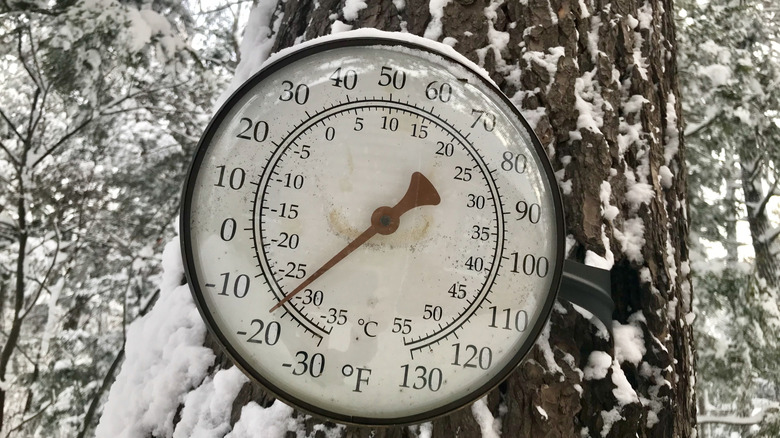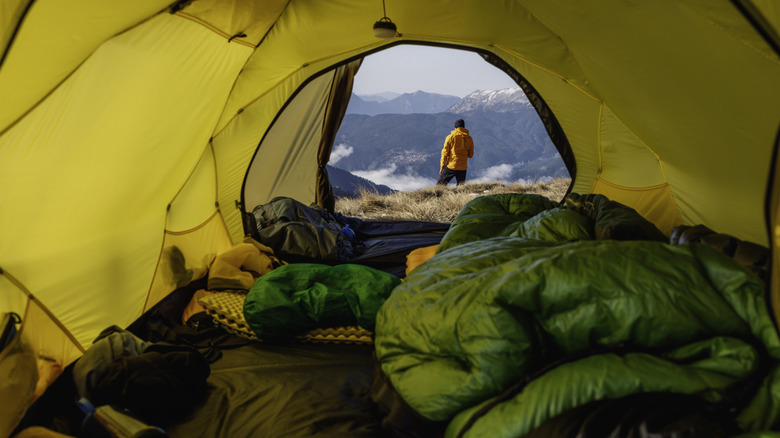The Simple Rhyme You Should Memorize To Safely Test Yourself For Hypothermia
Imagine being halfway through a bucket-list hike in Glacier National Park, when the temperature drops and you start trembling. Before you know it, your fingers don't cooperate when you try to snap a photo. That creeping chill could be the first stage of hypothermia, and knowing one simple phrase might literally save your life.
Outdoor educators love to teach a catchy warning sign called the "umbles": mumbles, stumbles, fumbles, and grumbles. To see if you or your hiking buddies are showing any hypothermia red flags, notice if you start to slur your speech (mumbles), trip over roots you would normally avoid (stumbles), drop objects (fumbles), or become cranky or apathetic out of the blue (grumbles).
Hypothermia is caused by a dangerous drop in core body temperature below about 95 degrees Fahrenheit (35 degrees Celsius) that happens when your body loses heat faster than it can produce it. This cooling slows brain and muscle function, which is why we get the "umbles". If not treated quickly, you can get frostbite — frozen skin and tissue — and gangrene, where blood flow to an area is completely cut off. In worst-case scenarios, hypothermia can be fatal. Symptoms show up little by little, which is why many people don't know they have hypothermia until it's too late. Luckily, the "umbles" is a short mnemonic device that's easy to remember even with a foggy mind, which is exactly when you need the reminder most.
If you suspect you have hypothermia, don't take it lightly
Travelers are often surprised by how easily hypothermia can strike far from the stereotype of an Arctic expedition. A damp ferry ride on a windy afternoon can sap body heat, especially if you're wearing cotton layers that stay wet after you disembark. Even in 50-degree-Fahrenheit climates, you can get hypothermia from wearing wet clothes. High-altitude hikes such as Colorado's 14ers can feel like summer in the sun but turn cold the moment dusk settles. Even a summer camping trip beside a lake can become dangerous if you're not layered up enough.
If you recognize the "umbles," the first step is to find shelter from the weather. Seek out a tent, a vehicle, a hut, or even a dense stand of trees that blocks the wind. Swap damp clothes for dry ones and pile on whatever insulation you have — jackets, spare socks, sleeping bags, or an emergency foil blanket (one of the lifesaving outdoor gear essentials you should have with you when off-grid camping in cooler climes). If you're with other people, share body heat and sip a warm drink. Avoid alcohol, though, as it actually speeds the skin's heat loss. If symptoms become moderate or severe —slow pulse, drowsiness, or a sudden stop in shivering — it's essential to call for medical help or activate local emergency services without delay. As you head to shelter or change your clothes, you should move as slowly as possible to avoid irregular heartbeats. When there's no need to move anymore, stay still and wait for an ambulance.

